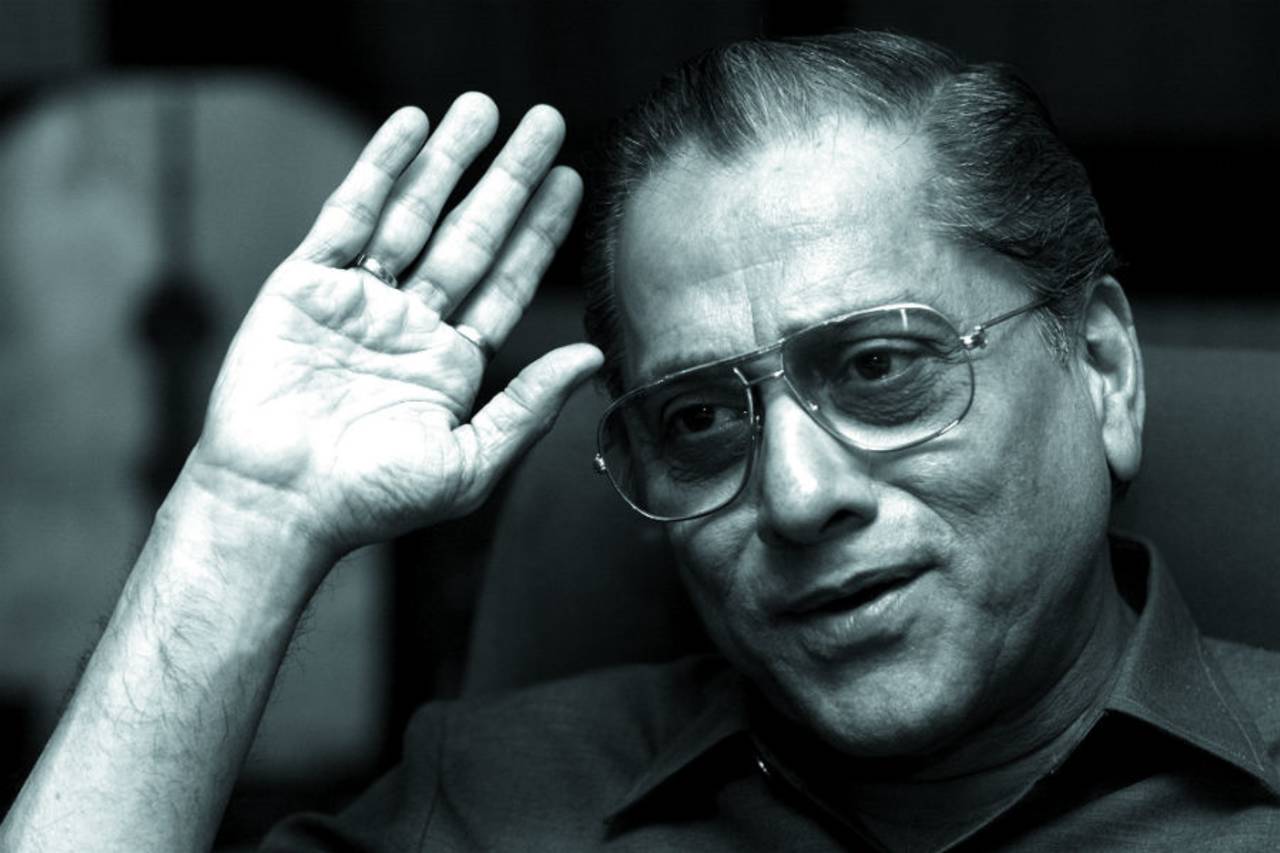'Field marshal and foot soldier rolled into one'
An associate of more than 25 years remembers Jagmohan Dalmiya as a caring elder, a razor-sharp business mind and a genuine cricket lover
Amrit Mathur
21-Sep-2015

Despite his multiple roles, Mr. Dalmiya never rushed; like a good batsman he had time, was always prepared and, in a way, was waiting for the ball to come to come to him • Savita Kirloskar/ESPNcricinfo Ltd
In moments like these, when death takes away someone you know, it is usual to remember the departed person fondly and remind ourselves of the great things he accomplished in his life. In the case of Jagmohan Dalmiya, there is no need for me to go down that path because his impressive cricket CV is already in the public domain.
My association with Mr. Dalmiya stretched back more than a quarter of a century after I first joined the BCCI as a representative of the Railways cricket board to begin with. During that period, he always treated me with a kindness and fondness that bordered on indulgence.
To me he was Jagmohanji, a respected elder, our conversations largely in Marawri, a language we shared, except during official business meetings. Very early on our meetings, I realised he was an extraordinary person - a unique mix, of a visionary who saw the big picture and yet had a sharp eye for the small print. You would put a 40-page document in front of him and he would digest it at speed, grasping its nuances, and file away what was essential into the right folder in his mind, and those facts would re-emerge in some heated meeting, proof of the supercomputer nature of his mind.
Mr. Dalmiya¹s brain was razor-sharp, studying and absorbing an issue from all angles, requiring very little of what business tycoons refer to as 'briefing'. In many ways he combined the qualities of a seasoned lawyer and a successful surgeon: firm, decisive, driven and determined. He succeeded, I believe, because he just refused to accept failure - that was never an option.
He kept a punishing daily schedule that started with work from his Shakespeare Sarani corporate office before lunch with the afternoons spent in his CAB office from where he would work late into the night, leaving for his residence in Alipore only when all business on hand was settled.
Despite his multiple roles, Mr. Dalmiya never rushed; like a good batsman he had time, was always prepared and, in a way, was waiting for the ball to come to come to him. In meetings, I observed, he was always ahead of the game, and as others flipped through papers at the last minute, Jagmohanji was relaxed, having done his homework in advance. With his business background he had an instinctive feel for numbers and nobody negotiated better than him, pulling off deals that others thought did not exist, extracting value higher than marketing wizards would have dreamt of. Whichever way you look at him one thing was certain: he meant business. He was Field marshal and foot soldier rolled into one, a leader who was willing to put in the hours.
At a personal level he genuinely, passionately loved cricket. This was part of his DNA, and he was a deeply proud, self-respecting individual who knew who his friends were and also knew how to maintain friendhips. To me he was a large-hearted, caring elder, someone I could go to and freely express my opinion. He always gave me a hearing, often spurned my advice, but I knew I enjoyed his trust and had the liberty to speak my mind. Mr. Dalmiya had a presence when he walked into a room, a giant through his accomplishments in cricket, who dominated people around him.
At times like these, moments like this, it is fashionable to say that the person just departed will be missed. In this instance, it is completely correct. Tigers like Jagmohan Dalmiya are a rare breed.
Amrit Mathur is a former manager of the Indian cricket team